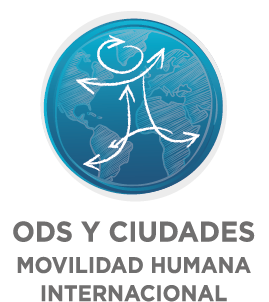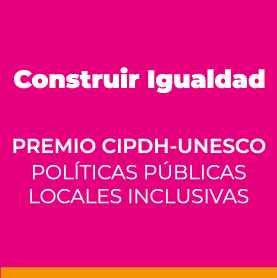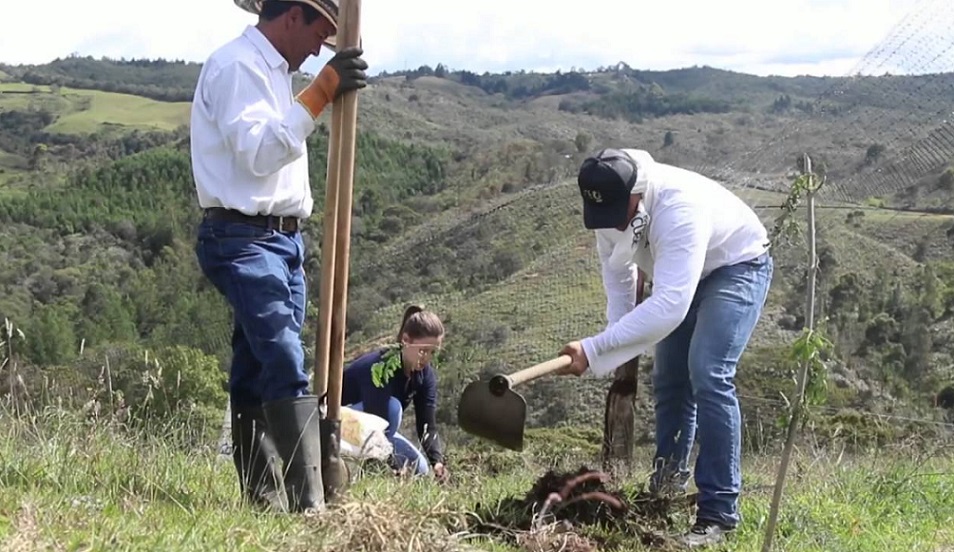
- Region
- Latin America and the Caribbean
- Range of Demographic Size
- 50,000 to 99,999 inhabitants (small intermediate)
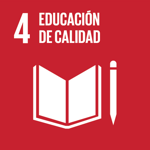
4.3 By 2030, ensure equal access for all women and men to affordable and quality technical, vocational and tertiary education, including university.
4.4 By 2030, substantially increase the number of youth and adults who have relevant skills, including technical and professional skills, to access employment, decent jobs and entrepreneurship.
4.5 By 2030, eliminate gender disparities in education and ensure equal access to all levels of education and vocational training for the vulnerable, including persons with disabilities, indigenous peoples and children in vulnerable situations.
4.7 By 2030, ensure that all learners acquire the knowledge and skills needed to promote sustainable development, including, among others, through education for sustainable development and sustainable lifestyles, human rights, gender equality, promotion of a culture of peace and non-violence, global citizenship and appreciation of cultural diversity and of culture’s contribution to sustainable development, among other means.
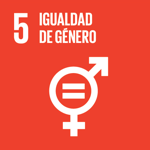
5.1 End all forms of discrimination against all women and girls everywhere in the world.
5.2 Eliminate all forms of violence against all women and girls in the public and private spheres, including trafficking and sexual and other types of exploitation.
5.5 Ensure women’s full and effective participation and equal opportunities for leadership at all levels of decision-making in political, economic and public life.
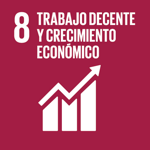
8.3 Promote development-oriented policies that support productive activities, decent job creation, entrepreneurship, creativity and innovation, and encourage the formalization and growth of micro-, small- and medium-sized enterprises, including through access to financial services.
8.4 Improve progressively, through 2030, global resource efficiency in consumption and production and endeavour to decouple economic growth from environmental degradation, in accordance with the 10-year framework of programmes on sustainable consumption and production, with developed countries taking the lead.
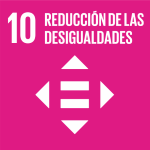
10-2 By 2030, empower and promote the social, economic and political inclusion of all, irrespective of age, sex, disability, race, ethnicity, origin, religion or economic or other status.
10.3 Ensure equal opportunity and reduce inequalities of outcome, including by eliminating discriminatory laws, policies and practices and promoting appropriate legislation, policies and action in this regard.
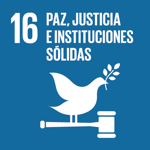
16.1 Significantly reduce all forms of violence and related death rates everywhere.
16.2 End abuse, exploitation, trafficking and all forms of violence against and torture of children.
16.3 Promote the rule of law at the national and international levels and ensure equal access to justice for all.
16.4 By 2030, significantly reduce illicit financial and arms flows, strengthen the recovery and return of stolen assets and combat all forms of organized crime.
16.7 Ensure responsive, inclusive, participatory and representative decision-making at all levels.
16.10 Ensure public access to information and protect fundamental freedoms, in accordance with national legislation and international agreements.
E - Gender equality
H - Indigenous peoples: interculturalism and rights
International Covenant on Economic, Social and Cultural Rights (ICESCR).
Additional Protocol to the American Convention on Human Rights in economic, social and cultural rights (San Salvador Protocol).
• Inter-American Convention on the Prevention, Punishment, and Eradication of Violence against Women (Convention of Belém do Pará)
Others
Summary
The purpose of this policy is to contribute to the collective construction of the conditions for a long-lasting peace and peaceful coexistence based on a life with dignity and opportunities for all inhabitants of the Municipality, from an approach of full enjoyment of rights.
It emerges to mitigate the devastating effects of the armed conflict that left high rates of victim population due to violations of human rights and breaches to Humanitarian International Law, and to restore coexistence. It implements social integration and post-conflict strategies, with collective peace construction actions linked to development, social inclusion and peaceful resolution of conflicts.
Implementation Date:
Start: 07 / 1 / 2016
End: End: Currently in force
Women
Children and teenagers
Indigenous peoples
Social/citizen participation
Communication and information channels, platforms and tools
Education and training
Institutional strengthening
Building of partnerships, networks, associations and coalitions
Subnational goverment
National government
- Email: contactenos@girardota.gov.co
- Web: http://www.girardota.gov.co/Paginas/default.aspx
- Telephone: (57-4) 322-4299 // Atención al Ciudadano Extensión 1100
- Social Network:
Instrumentos

4.3 By 2030, ensure equal access for all women and men to affordable and quality technical, vocational and tertiary education, including university.
4.4 By 2030, substantially increase the number of youth and adults who have relevant skills, including technical and professional skills, to access employment, decent jobs and entrepreneurship.
4.5 By 2030, eliminate gender disparities in education and ensure equal access to all levels of education and vocational training for the vulnerable, including persons with disabilities, indigenous peoples and children in vulnerable situations.
4.7 By 2030, ensure that all learners acquire the knowledge and skills needed to promote sustainable development, including, among others, through education for sustainable development and sustainable lifestyles, human rights, gender equality, promotion of a culture of peace and non-violence, global citizenship and appreciation of cultural diversity and of culture’s contribution to sustainable development, among other means.

5.1 End all forms of discrimination against all women and girls everywhere in the world.
5.2 Eliminate all forms of violence against all women and girls in the public and private spheres, including trafficking and sexual and other types of exploitation.
5.5 Ensure women’s full and effective participation and equal opportunities for leadership at all levels of decision-making in political, economic and public life.

8.3 Promote development-oriented policies that support productive activities, decent job creation, entrepreneurship, creativity and innovation, and encourage the formalization and growth of micro-, small- and medium-sized enterprises, including through access to financial services.
8.4 Improve progressively, through 2030, global resource efficiency in consumption and production and endeavour to decouple economic growth from environmental degradation, in accordance with the 10-year framework of programmes on sustainable consumption and production, with developed countries taking the lead.

10-2 By 2030, empower and promote the social, economic and political inclusion of all, irrespective of age, sex, disability, race, ethnicity, origin, religion or economic or other status.
10.3 Ensure equal opportunity and reduce inequalities of outcome, including by eliminating discriminatory laws, policies and practices and promoting appropriate legislation, policies and action in this regard.

16.1 Significantly reduce all forms of violence and related death rates everywhere.
16.2 End abuse, exploitation, trafficking and all forms of violence against and torture of children.
16.3 Promote the rule of law at the national and international levels and ensure equal access to justice for all.
16.4 By 2030, significantly reduce illicit financial and arms flows, strengthen the recovery and return of stolen assets and combat all forms of organized crime.
16.7 Ensure responsive, inclusive, participatory and representative decision-making at all levels.
16.10 Ensure public access to information and protect fundamental freedoms, in accordance with national legislation and international agreements.
E - Gender equality
H - Indigenous peoples: interculturalism and rights
International Covenant on Economic, Social and Cultural Rights (ICESCR).
Additional Protocol to the American Convention on Human Rights in economic, social and cultural rights (San Salvador Protocol).
• Inter-American Convention on the Prevention, Punishment, and Eradication of Violence against Women (Convention of Belém do Pará)
Others
Location
- Region
- Latin America and the Caribbean
- Range of Demographic Size
- 50,000 to 99,999 inhabitants (small intermediate)
Contact details
- Email: contactenos@girardota.gov.co
- Web: http://www.girardota.gov.co/Paginas/default.aspx
- Telephone: (57-4) 322-4299 // Atención al Ciudadano Extensión 1100
- Social network:


